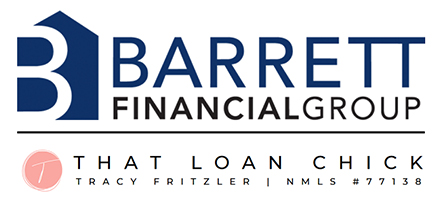What is the interest rate today?
Mortgage rates change by the second. While there are some connections between the stock market and mortgage rates, it's important to note that they are not directly tied. Mortgage rates are primarily influenced by the broader economic conditions, including the overall interest rate environment set by the Federal Reserve.
Here are some key points to consider:
- Interest Rates and the Federal Reserve: Mortgage rates are often linked to the interest rates set by the Federal Reserve. When the Fed raises or lowers the federal funds rate, it can have a ripple effect on various interest rates, including those for mortgages.
- Economic Conditions: Mortgage rates are influenced by the overall health of the economy. In a strong economy, demand for loans may increase, leading to higher interest rates. Conversely, during economic downturns, rates may decrease to stimulate borrowing and spending.
- Credit Score and Financial Profile: Lenders assess your credit score, debt-to-income ratio, and overall financial profile when determining the interest rate you qualify for. A higher credit score and lower debt-to-income ratio generally lead to lower mortgage rates.
- Property-related Factors: The type of property (e.g., primary residence, investment property) can impact your mortgage rate. Additionally, the loan-to-value ratio (LTV) and the size of the down payment may influence the rate.
- Geographic Variation: Mortgage rates can vary by region and state due to factors such as local market conditions, housing demand, and economic trends specific to those areas.
It's crucial to monitor economic indicators, stay informed about Federal Reserve decisions, and maintain a good credit score to secure favorable mortgage rates. While stock market conditions can indirectly impact the broader economy, they are just one of many factors influencing mortgage rates. Mortgage rates are also subject to change based on market dynamics, lender policies, and other economic indicators.
Can I lock my rate when I start the loan process?
Indeed, the decision to lock in a mortgage rate or float (waiting for a potentially lower rate) is an important consideration for homebuyers. Here are some key points to keep in mind:
- Rate Lock: When you lock in a mortgage rate, the lender guarantees that specific rate for a specified period, typically 30 to 60 days. This protects you from potential rate increases during that time, even if market rates go up.
- Floating: Choosing to float means you don't lock in your rate immediately. Instead, you take the risk of your rate changing based on market fluctuations. If rates go down, you may be able to secure a lower rate. However, if rates rise, you could end up with a higher rate than initially offered.
- Market Conditions: Monitoring market conditions is crucial when deciding whether to lock or float. If rates are already at historical lows, the potential for significant further decreases may be limited. However, if there are indications that rates might drop further, floating could be a strategic decision.
- Risk Tolerance: Your risk tolerance plays a role in this decision. If you're risk-averse and have found a rate that meets your financial goals, locking in may provide peace of mind. If you're comfortable with some uncertainty and believe rates may decrease, floating might be an option.
- Consultation with Lender: Engaging in a discussion with your lender or mortgage advisor is essential. They can provide insights into current market conditions, future rate projections, and help you make an informed decision based on your financial situation and goals.
It's important to note that predicting interest rate movements is challenging, and market conditions can change rapidly. Both locking and floating have their pros and cons, and the right choice depends on your individual circumstances, market conditions, and risk tolerance. Communication with your lender and staying informed about economic trends can aid in making the best decision for your specific situation.
I’d like to schedule a time to speak with Tracy click here.
I want to submit an application and start my loan click here.



